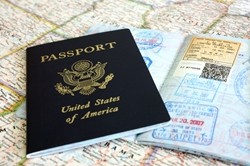Learn About Tax Exclusions and Exemptions that are Available for Americans Living Abroad
All US citizens and green card holders who earn over $10,000 a year, or just $400 of self-employment income, are required to file a federal return declaring their worldwide income, wherever in the world they live or their income is generated. They must also pay US tax on it.
There are also some extra filing requirements for expats, such as filing form 8938 for those with over $200,000 of foreign assets (not including a home owned in the tax payer’s name) and filing FinCen form 114 for those with over $10,000 in foreign accounts at any time during the tax year.
Thankfully there are several exclusion and exemptions that expats can claim to reduce or in many cases eliminate completely their US tax liability. The three principal ones are the Foreign Earned Income Exclusion, the Foreign Housing Exclusion, and the Foreign Tax Credit.
The Foreign Earned Income Exclusion
The Foreign Earned Income Exclusion allows US expats to exclude up to around $100,000 (the exact figure rises a little each year) of foreign earned income from US tax liability. To claim it, you need to meet either the Bona Fide Resident Test or the Physical Presence Test.
The Physical Presence test states that you must be physically outside the US and in another country for a minimum of 330 days in a 12 month period. Days traveling between countries don’t count, and a day is defined as being the whole of a 24 hour period. There is flexibility about when the 12 month period starts though, and if you are just over at the tax-filing time, by applying for a filing extension you can move the 12 month period to gain the extra days you need. The Bona Fide Residence test meanwhile requires you to prove that you are resident in another country, for example by paying taxes there, having official residence status there, and having a permanent home there.
The Foreign Earned Income Exclusion is elective (voluntary), so to claim it you need to attach form 2555 to your federal income tax return. Once claimed, the FEIE continues through subsequent years until you revoke it. Once you have revoked it, you can’t claim it again for 5 years.
Foreign Housing Exclusion
The Foreign Housing Exclusion is a separate exclusion but can be claimed in conjunction with the Foreign Earned Income Exclusion, also on form 2555.
If you live abroad in rented accommodation, it allows you to claim certain housing expenses as tax-deductible, including rent, utilities, necessary repairs, and residential parking.
It’s a useful exclusion for people who earn a little over the FEIE limit, as it allows them to exclude the whole of their foreign earned income from US tax liability.
The Foreign Tax Credit
The Foreign Tax Credit is a separate mechanism that allows you to claim a dollar tax credit for every dollar of tax you’ve paid in a foreign country.
It’s often a good option for people who live and work in countries where they pay a higher income tax rate than the US. For example, if you earn $50,000, you would in theory owe the US (at 2015 rates) $8,293.50 in income tax. However if you were living and earning in a county where you paid 30% income tax with no personal allowance, you’d have to pay $15,000 in tax to that country.
If you then elected to use the Foreign Tax Credit, you could claim $15,000 of US tax credits (the same amount of tax that you paid abroad), of which you could carry $15,000 – $8293.50 = $6706.50 forward for future use. If you were planning to work abroad for a few years and then return to live in the States, you could save up quite a lot of tax credits for the future while you were away – the US would effectively be compensating you for the extra tax you’d had to pay abroad.
If you had just claimed the Foreign Earned Income Exclusion in the same circumstances though, although you still wouldn’t owe the US any tax in the short term, you wouldn’t build up tax credits to use in the future.
In some circumstances, such as if your income is over $100,000, the Foreign Earned Income Exclusion and the Foreign Tax Credit can also be claimed simultaneously, though they can’t both be applied to the same income.
The Foreign Tax Credit can be claimed using Form 1116. A separate form of 1116 is required for each income stream.
With clients in over 150 countries, Bright! Tax is a leading US expat tax services provider for Americans living abroad. We feature affordable, fixed fees, and bank-grade online security, while our customer service is second to none in ensuring that our clients enjoy the smoothest possible path to compliance. If you have any questions regarding your tax situation, don’t hesitate to get in touch for some advice.




